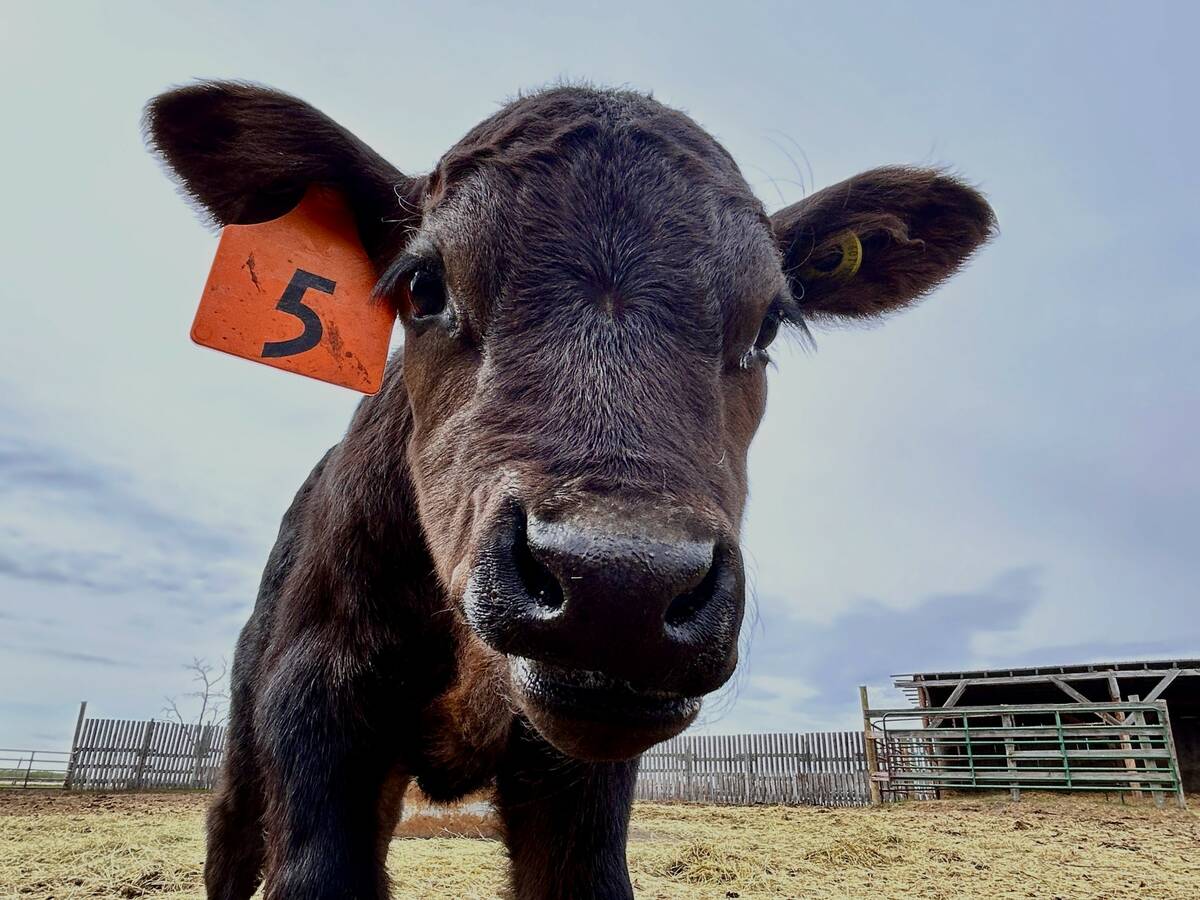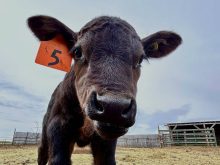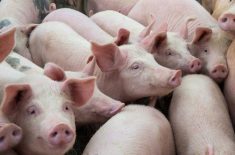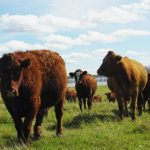INNISFAIL, Alta. Ð It has been a frustrating year for Jim Chatenay.
As one of 10 farmer-elected directors to the Canadian Wheat Board, the maverick from Red Deer continues his fight for a voluntary wheat board. Along the way he has learned to adjust to the closed world of a board member.
“It’s been an up and down year for all of us in the board room,” Chatenay said shortly before a throng of farmers packed the Innisfail Legion Hall.
“Much to the surprise of some, I will continue to do what I was elected to do, even though I am walking on thin ice vis-‡-vis loyalty to the Canadian Wheat Board and abiding by the code of conduct and conflict of interest guidelines,” he said. “They are very disturbing to me.”
Read Also

Calf hormone implants can give environmental, financial wins
Hormone implants can lead to bigger calves — reducing greenhouse gas intensity, land use intensity and giving the beef farmer more profit, Manitoba-based model suggests.
Chatenay believes his Alberta constituents are desperate for change, but also feels his efforts to further their wishes have been trampled in Winnipeg.
But he has not relented. He voted against the new generation co-operative policy and the transportation policy, and he has some concerns about the new pricing options policy.
“They are no substitute for pro-choice western grain marketers,” he said.
His words were greeted with foot stomping, whistles and cheers of “way to go, Jim.”
Those coming to the microphone later in the evening were largely pro-choice supporters, including a band of Saskatchewan farmers who used the meeting as a forum to show their dissatisfaction with the wheat board.
When one producer asked for those in favor of a voluntary market to stand, most of the nearly 400 people in the crowd came to their feet.
Producer comments and questions ranged from specific issues such as organic grain to more general complaints directed at president Greg Arason.
Organic farmer Steven Schneider told Arason he does not want the wheat board to sell his grain.
Instead of being forced to use the board’s buy-back program, Schneider wants an exemption certificate similar to what is used by pedigreed seed growers.
“We built this system, we’ve worked at our production practices, we’ve made our markets … and a system of accountability in place with the product we produce.”
Arason said some farmers may abuse the system and claim grain is organic to avoid the CWB buyback system when they decide to export. He said reaction has been mixed from the organic industry and meetings will be held across the country later this year.
Other complaints were about prices. One farmer said North Dakota is quoting $4 a bushel for malting barley.
Arason said the board does a good job making money for farmers, but that doesn’t mean it’s always going to get the best price.
“We are well aware of the competitive prices that are paid for malt barley anywhere in the world,” he said.
“We add value in many different ways. I too can pick a spot price that’s better than the average.”
Several farmers complained they see no way to implement change even with an elected board of directors. Arason said farmers have the responsibility to tell their directors what they want.
Jarvis Massey of Wetaskiwin disagreed.
“Over 60 percent of Alberta farmers want a dual market,” he said, referring to the province’s plebiscite in 1997.
“We’re frustrated because we’re facing a brick wall for years now. We’re being ignored.”
















